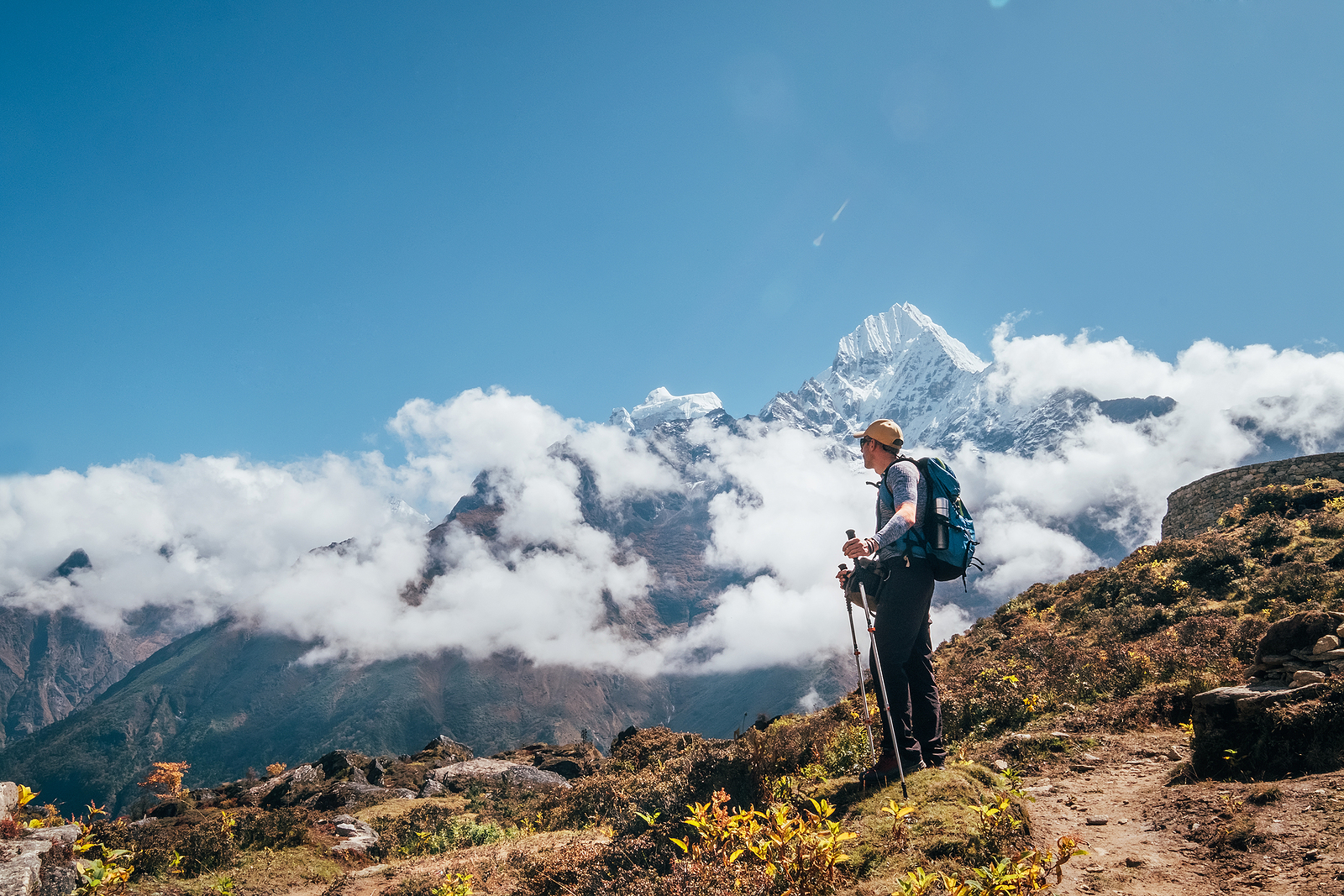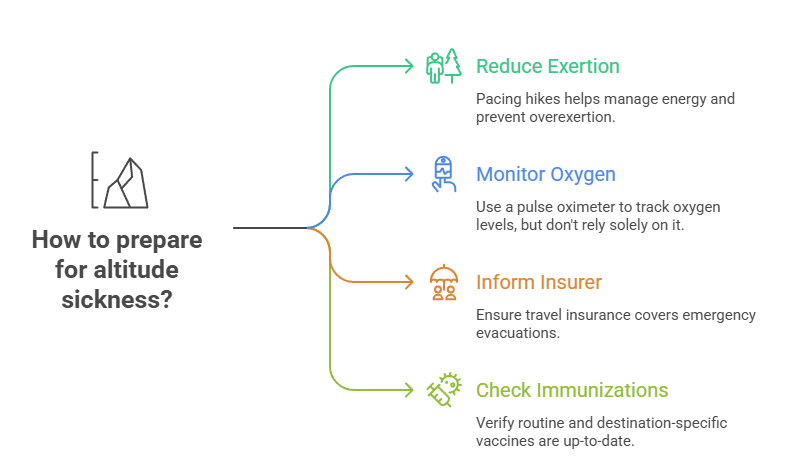A guide to coping with Altitude Sickness
This guide will cover how to recognise and manage altitude sickness, what happens to your body at altitude, why some people are more affected than others and simple steps to reduce risk. Here at MK Travel, we recommend planning ahead and checking your immunisations to start your holiday off right.
What is altitude sickness
Altitude sickness occurs when your body struggles to adapt to lower oxygen levels at greater heights. Mild forms cause headaches, nausea and tiredness whilst more serious cases can affect your breathing and coordination. It often appears within hours of rapid ascent and can affect fit hikers and novice travellers alike.
Symptoms and severity
Common early symptoms include persistent headaches, a loss of appetite, nausea, dizziness and fatigue. Symptoms usually worsen with exertion. Severe forms such as high altitude pulmonary oedema or cerebral oedema are rare but life threatening. These present with breathlessness, severe cough, confusion and loss of balance. If symptoms progress, do not ascend further and seek urgent medical help.

Preventing altitude problems
Prevention starts with a sensible ascent profile and good preparation. Allow your body time to adapt by ascending slowly and including rest days. Avoid alcohol and heavy exertion in the first 24 to 48 hours at new heights. Stay well hydrated and eat light meals. Medications such as acetazolamide can help certain travellers but should be discussed with a clinician. MK Travel can advise on medication and vaccinations as part of your travel plan.
Our Reviews Speak for Themselves
Our travel vaccination customers use us across Milton Keynes, Newport Pagnell, Bletchley and Woburn Sands
Very pleasant and helpful staff.
I recently got my vaccine done here. The staff were super helpful and kept me at ease throughout. I Didn’t even realise the owner was there ensuring it was operationally efficient and we were seen quickly. Many thanks.
The Staff here have been great, especially Becky who always goes above and beyond to help, highly recommended.
Always friendly and efficient. Deal with us quickly.
Excellent service from very friendly, knowledgeable and helpful staff.
Lovely staff, great service- very caring.
Very friendly and knowledgeable staff, who will go out of their way to help. If only there were more stars than 5.
Treating altitude sickness
For mild symptoms descend a few hundred metres, rest and use simple pain relief and anti nausea remedies if needed. Oxygen and descent are mainstays for severe illness. Always err on the side of caution. If in doubt, descend and seek professional help.
When to seek urgent help
If you experience severe breathlessness, the inability to walk, persistent vomiting, confusion, chest pains or blue lips seek emergency services immediately. Even if your symptoms subside after rest seek medical review as complications can recur. Carry medical information and inform companions about evacuation plans.
Before travelling to high places, book a consultation appointment to ensure you’re prepared for your next holiday.

Why Choose MK Travel Clinic
Same day vaccination appointments available
Flexible on times and bookings
Expert pharmacists
Well priced vaccinations & medication